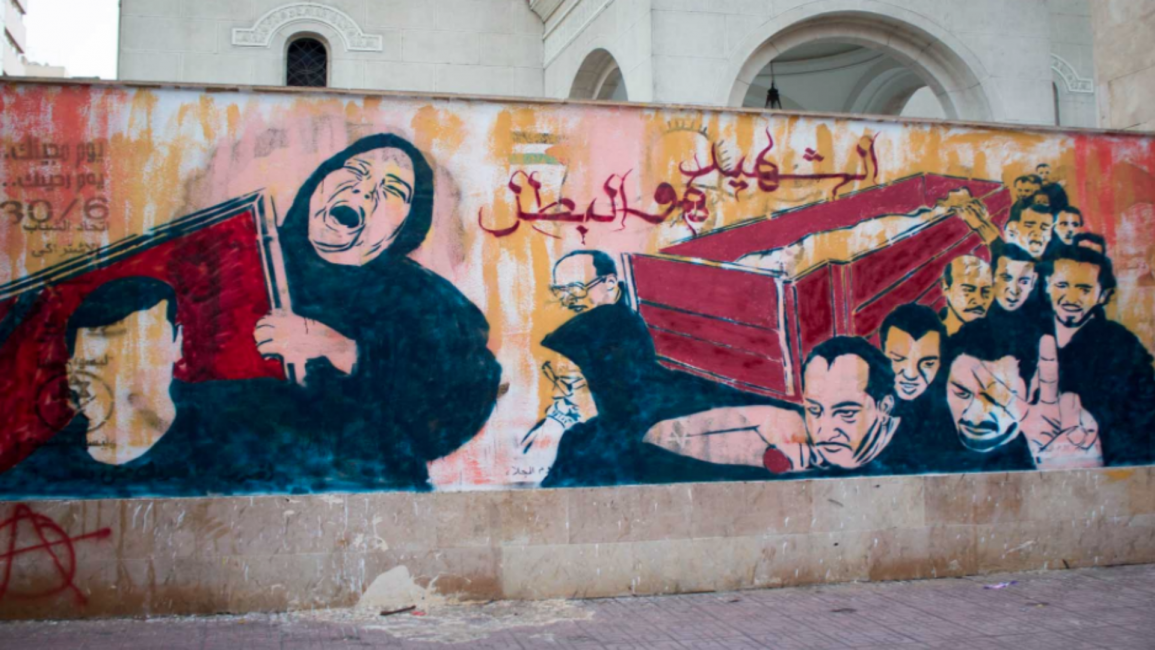Getting away with murder in Egypt
I asked Najiya Abdul Malik about the circumstances of the death of her son, 25-year-old Mustafa Kamal, in front of al-Zawiya al-Hamra police station.
Najiya handed me a bullet.
"This is the bullet that was in my son," she said. "It fell out of his chest when he was being washed [for burial]. He had been shot twice; the second bullet was in his stomach and caused him to bleed internally.
| This is the bullet that was in my son. It fell out of his chest when he was being washed for burial. - Najiya Abdul Malik |
"I took this bullet to the prosecutor's office and I asked to keep it with me. I'll bring it in when they request it. I don't want to leave it because it has the scent of my son. I smell it at night and look at it. I always keep it close to my heart."
In this video, you will see how I failed to regain my composure after Najiya's statement. I asked if her son had a criminal record, to answer the accusations that the people killed in front of police stations and security offices were bultagiya ["thugs"] who had confronted police.
A desperate ploy
The ailing state did not want to face the fact that the revolutionaries were, in a matter of hours, able to topple an apparatus of oppression that had cost billions of dollars to build. Such accusations assume that mass murder is fine as long as those killed had been deemed criminals by a corrupt court system.
Mustafa did not have a criminal record, and his involvement in politics only began on the "Friday of Anger" of 28 January 2011, when he went to Tahrir Square with his uncle to protest about the lack of work.
His family had lost a son and a vital breadwinner. He used to give his mother 30 of the 50 Egyptian pounds ($7) he earned on every day of work he could find.
At the time we were filming, the police corporal who shot Mustafa was the only police officer to have been sentenced to death for his actions. Later, that sentence was quashed, and many other police accused of killing protesters were acquitted in trials based on laws passed by those who ordered the killings.
Judge Mahmoud Kamel al-Rashidi last week used these travesties of justice as precedents to acquit Hosni Mubarak and his aides of similar charges. The judge thought that lecturing Egyptians about religion, morals and refraining from gossip would cover the shame of his verdict.
A convenient religion
| The judge, and others like him, believe they are at the top with God's blessing. |
The judge, and others like him, believe their rich lifestyles are a bounty from God and a result of their piety. They believe they are at the top with God's blessing.
They believe that keeping their order intact - by suppressing people such as Mustafa - shows gratitude to God.
In the revolution, Mustafa and people like him attempted to regain the rights to their country. But to those like the honourable judge, a revolt against those in power is a revolt against the will of God.
In the religion of the honourable judge, the only thing that is acceptable is for him to get closer to God by asking the new chief murderer to loosen the purse strings for the families of those killed and wounded, so they can bury their sorrows and accept the fact that the murderers of their children evade justice.
The bullet that penetrated the body of Mustafa will now stay close to the heart of his mother, who waits for justice to ease her pain and the pain of a country whose people have squandered the truth and based their lives on falsehoods.
Something based on a falsehood will not lead to anything but more blood and decay.
Opinions expressed in this article remain those of the original author and do not necessarily reflect the opinions of al-Araby al-Jadeed, its editorial board or staff.
This is an edited translation from our Arabic website.



